#it still has a novelistic structure
Text
honestly i thought that joining a writing group would hold me accountable to deadlines and motivate me to write more but instead im so constantly stressed i can barely sleep
#dellete#this is .#not a real world problem. im aware of that#criticism isn't the problem; criticism makes things better I'm surr#*sure#im just so tired.... i feel like every young aspiring novelist has half a book cranked out already while im still structuring workshopping#havent written a chronological set of chapters because i keep going back to the drawing board#im never doing enough and i know in part this is affected by the relentless depressive episodes#which im not managing well either#im just - fuuck! fuck! i need to achieve something! i need to achieve something good and#prove that im worthy#i have the ideas and the ... themes and the arcs to make something good here i think but it needs to be impeccably structured#and im wasting time and im never going to make it but i need to prove im good for something#and its difficult i just cant do enough. i just cant do enough even though i do fuck all with my life and i cant outrun the old anxiety#that it needs to be done ASAP because i might not have much time left#im stressed? im stressed and tired and i feel mocked and. and these arent even real world problems like jobs and bills and shit#im barely interacting with the world as it were and its so terrifying to me#its so disappointing. whatever
9 notes
·
View notes
Text

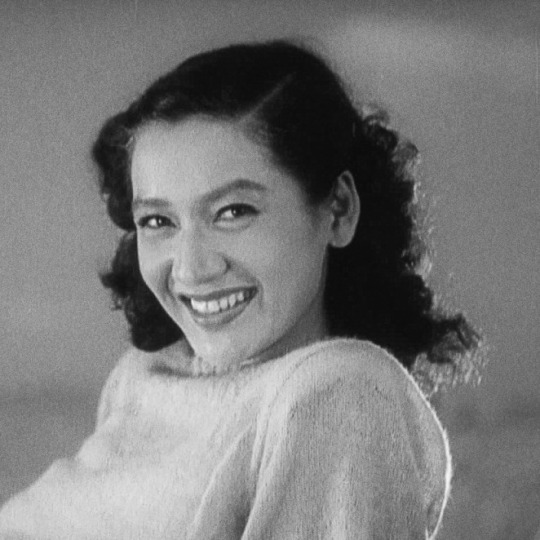
Propaganda
Yvonne De Carlo (Frontier Gal, The Ten Commandments, Casbah)— Although most famous for playing Lily Munster in The Munsters, Yvonne De Carlo had a successful movie career throughout the 1940s and 1950s, appearing in such films as “The Ten Commandments”, “Sea Devils” and two Munster movies later in life.
Setsuko Hara (Tokyo Story, Late Spring, The Idiot)— "'The only time I saw Susan Sontag cry,' a writer once told me, his voice hushed, 'was at a screening of a Setsuko film.' What Setsuko had wasn’t glamour—she was just too sensible for that—it was glow, one that ebbed away and left you concerned, involved. You got the sense that this glow, like that of dawn, couldn’t be bought. But her smiles were human and held minute-long acts, ones with important intermissions. When she looked away, she absented herself; you felt that she’d dimmed a fire and clapped a lid on something about to spill. Over the last decade, whenever anyone brought up her lips—'Setsuko’s eternal smile,' critics said, that day we learned that she’d died—I thought instead of the thing she made us feel when she let it fall." - Moeko Fujii
This is round 2 of the tournament. All other polls in this bracket can be found here. Please reblog with further support of your beloved hot sexy vintage woman.
[additional propaganda submitted under the cut]
Yvonne de Carlo:

The woman who brought Burt Lancaster to his knees.
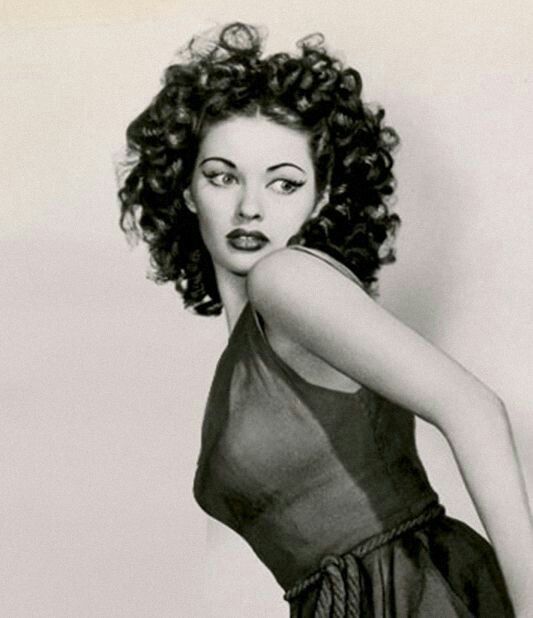
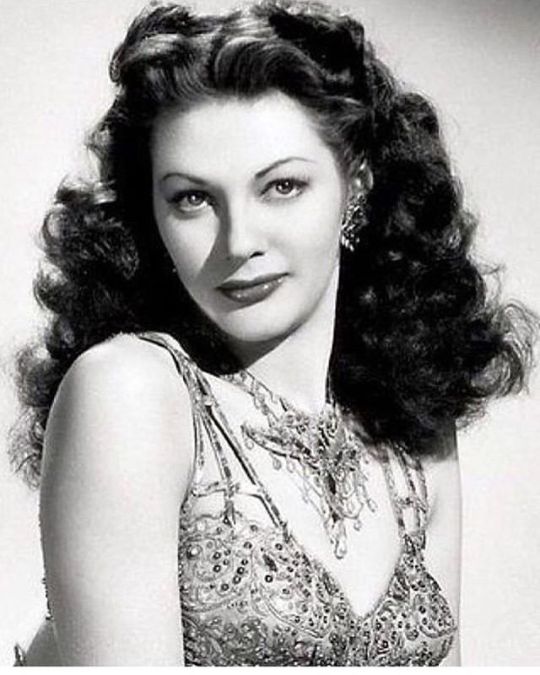
Setsuko Hara:

One of the best Japanese actresses of all time; a symbol of the golden era of Japanese cinema of the 1950s After seeing a Setsuko Hara film, the novelist Shūsaku Endō wrote: "We would sigh or let out a great breath from the depths of our hearts, for what we felt was precisely this: Can it be possible that there is such a woman in this world?"
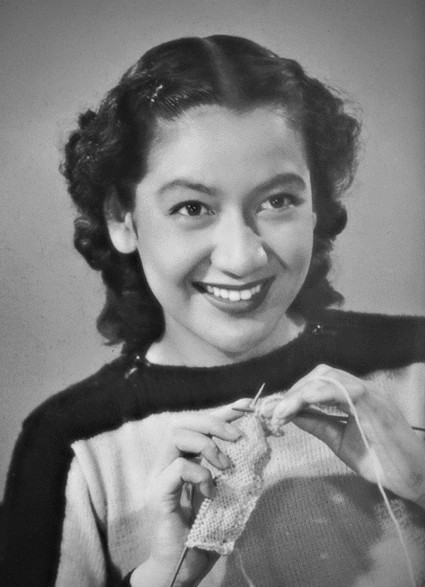
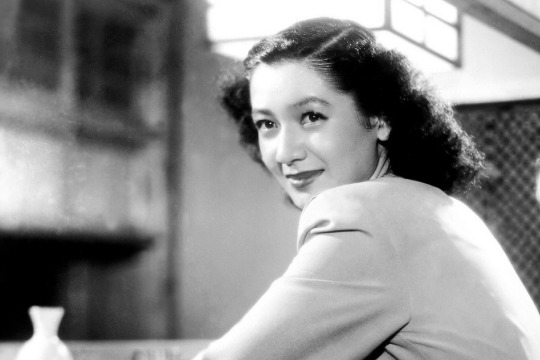
One of the greatest Japanese actresses of all time!! Best known for acting in many of Yasujiro Ozu's films of the 40s and 50s. Also she has a stunning smile and beautiful charm!
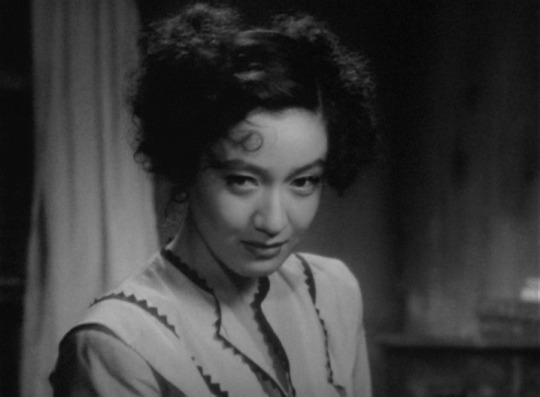
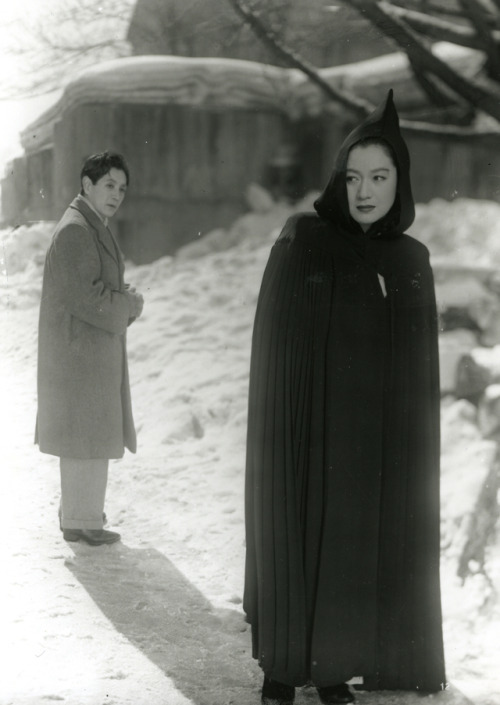

Linked gifset
Linked gifset 2
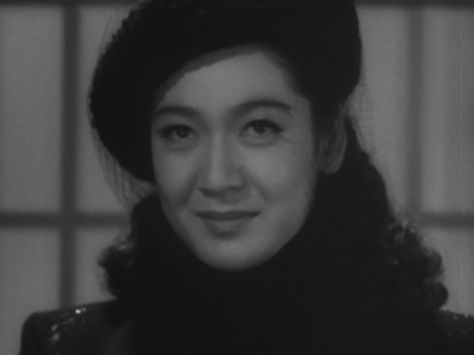
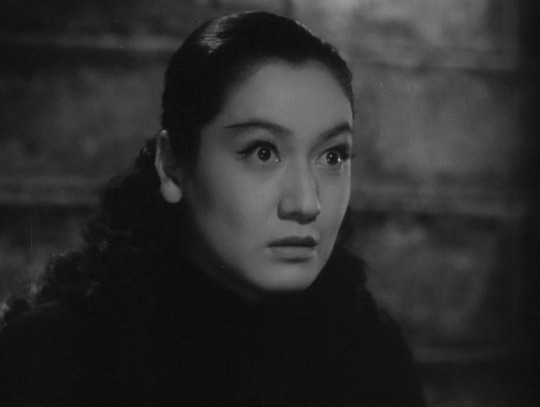

She's considered by some to be the greatest Japanese actress of all time! In Kurosawa's The Idiot she haunts the screen, and TOTALLY steals the show from Mifune every time she appears.

"No other actor has ever mastered the art of the smile to the same extent as Setsuko Hara (1920–2015), a celebrated star and highly regarded idol who was one of the outstanding actors of 40s and 50s Japanese cinema. Her radiant smile floods whole scenes and at times cautiously undermines the expectations made of her in coy, ironic fashion. Yet her smile's impressive range also encompasses its darker shades: Hara's delicate, dignified, melancholy smile with which she responds to disappointments, papers over the emotions churning under the surface, and flanks life's sobering realizations. Her smiles don't just function as a condensed version of her ever-precise, expressive, yet understated acting ability, they also allow the very essence of the films they appear in to shine through for a brief moment, often studies of the everyday, post-war dramas which revolve around the break-up of family structures or the failure of marriages. Her performances tread a fine line between social expectation and personal desire in post-war Japan, as Hara attempts to lay claim to the autonomy of the female characters she plays – frequently with a smile." [link]

Leading lady of classic Japanese cinema with a million dollar smile
Maybe the most iconic Japanese actress ever? She rose to fame making films with Yasujiro Ozu, becoming one of the most well-known and beloved actresses in Japan, working from the 30s through the 60s in over 100 hundred. She is still considered one of the greatest Japanese actresses ever, and in my opinion, just one of the greatest actresses of all time. And she was HOT! Satoshi Kon's film Millennium Actress was largely based on her life and her career.
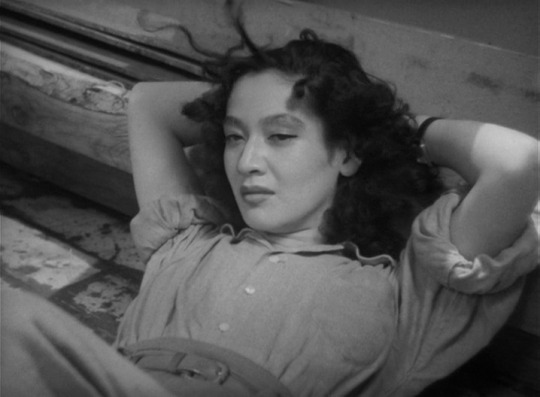
366 notes
·
View notes
Note
Pale Fire poem is bad, right?
No, not exactly. The actual poetry is still enjoyable because John Shade's narrative voice is compelling, and the elegance of the poem's structure sets it apart from doggerel verse. It resembles Nabokov's own English language poetry, but the difference is that “Pale Fire” is (by design) inextricable from the context of the novel, Pale Fire. When you try to analyse it on its own, it becomes somewhat banal, an elevated iteration of Footprints in the Sand: a man reflects on his life and searches for meaning in the wake of a tragic loss, suspecting his dead daughter is trying to communicate with him, but ultimately concludes that even if the dead do speak to us from beyond, it would not be through visions and hauntings, but in ways that surpass human imagination by orders of magnitude.
John Shade is a fine poet—but Nabokov is a brilliant novelist, so both Shade and his poem became moving parts in a clockwork universe. Would you think twice about his poor Aunt Maude if you hadn't deciphered his verse about her aphasia and linked it to the transcription (pada ata lane pad not ogo old wart alan ther tale feur far rant lant tal told.¹) from Hazel's “failed” seance that Kinbote dismissively included in his footnotes?
¹ The bolding is mine, to show the three repetitions of “atalanta” (both forward and backward) that correspond with Pale Fire's motif of threes —Shade wrote the poem in three weeks, Kinbote wants you to read the commentary thrice for every time you read the poem, the Zemblan fairy tale that mentions three hundred camels and three fountains, etc.
The transcription itself is from the third night of Hazel's séance. It's a message from Maude's ghost, who remains afflicted by aphasia. Brian Boyd describes it more succinctly than I can:
But as we reread we can now see instead a message to Hazel to tell her "father (pada: pa, da, padre) he is not to go across the lane to old Goldsworth's, as an atalanta butterfly dances by, after he finishes 'Pale Fire' (tale feur), at the invitation of someone from a foreign land who has told and even ranted his tall tale to him.
So the ghost is not only real, but is—coming back to the clockwork universe metaphor—also unwittingly moved by the same metaphysical harmonic oscillator as the rest of the characters, a small part of a mechanism so complex that the paranormal is merely another component. You can't derive any of that from the verse, but when you reread it within the context of the book, you see all the intricate ways that this force operates within the poem—that's when it becomes good.
#there's also the fact that it's impossible for writers to write characters who are better writers than they themselves are#i have heard it said that when god created the universe‚ He had to exhale and get a little smaller‚ just to make room to work properly#nabokov the poet had to exhale to create john shade the poet#pale fire#vladimir nabokov#anonymous#assbox
56 notes
·
View notes
Text
Plot Twists Aren't Real: Defining "Agency"
People get into writing because they want to write cool things, and one of the coolest things in the eyes of the early writer is the "twist": twist ending, twist villain, etc. But twists only appear to exist; in strong writing, there are no twists. Let me explain.
If you've read some posts on my blog (which, thank you for the reception :)), you'll know I preach above all that character makes story, specifically character change. If Edmund wants something in the narrative, he will take an action towards that thing. That might lead to consequences or blessings that will cause him to make another action. More consequences or blessings, action, etc., until your story is done! All narratives are, at their core, cause and effect.
But obviously some stories are stronger than others (not in the sense of quality, since that word is subjective and nebulous, but in the sense of structure, how it holds up, its reliability), but how? It's about information. Think about the decisions you make in real life from a game theory perspective. In any moment, you can only make choices with the information you're given. If you want to get a pizza from the local pizzeria, and you're hungry, you will do that, and that will be a good choice. Similarly, if you want to get a pizza but you didn't know the pizzeria was staffed by murderers, you will still get the pizza, and even if you die, it will still have been a good decision, because you were working with the information you had.
Your characters can also only act on their own information. If your character wants a pizza and gets it, that's solid writing (albeit too bland), because it's solid cause and effect. If your character is killed by the secret pizzeria mob, that's poor writing. (Obviously there are exceptions: if it was a throwaway character designed to show the reader the pizzeria mob exists, for example.)
This is what people mean when they talk about characters who are "agents" in the story. A strong central character, a character with agency, is a character who makes decisions based on what they know and have. This doesn't mean they always make the best decision--and most of the best literature is filled with characters who make bad or mentally/emotionally/ethically gray decisions--it just means they're doing what we do as humans. But if your character operates on the best information they have and are still punished for it (ie. the pizzeria mob), they aren't an agent in the narrative, they are the narrative's victim. People don't want to read about victims; they want to read about characters who, by their actions, become victims.
Take maybe literature's most famous "victim" Oedipus, who has sex with his mom on accident. The story of Oedipus isn't him waking up one day, finding a beautiful woman, having sex with her, and then realizing it's his mother. It's a story of Oedipus making horrible decisions--killing a man, refusing to listen to people wiser than him--in order to sleep with this beautiful woman who happens to be his mother. The mom part isn't an accident in the narrative but the narrative punishment for Oedipus's horrible choices.
This is my summary of the idea, but hear it also from John Gardner in his book On Becoming a Novelist, a must-read if you haven't yet:
"Only the writer who has come to understand how difficult it is to tell a first-rate story--with no cheap manipulations, no breaks in the dream, no preening or self-consciousness--is able to appreciate fully the concept of 'generosity' in fiction. In the best fiction, plot is not a series of surprises but an increasingly moving series of recognitions, or moments of understanding. One of the most common mistakes among young writers (those who understand that fiction is storytelling) is that the story gets its power from withheld information--that is, from the writer's setting up the reader and then bushwhacking him. Ungenerous fiction is foremost fiction in which the writer is unwilling to take the reader as an equal partner." (Gardner 47-48)
"The wise writer counts on the characters and plot for the story's power, not on tricks of withheld information, including withheld information at the end... In other words, the writer lays himself wide open, dancing on a high wire without a net. The writer is generous, too, in that, for all his mastery of technique, he introduces only those techniques useful to the story: he is the story's servant, not a donzel for whom the story serves as an excuse to show off pyrotechnics. This is not to say that he's indifferent to the value of performance. Those techniques he uses because the story needs them he uses brilliantly. He works entirely in the in the service of the story, but he works will class." (Gardner 50)
What we perceive as a twist occurs when both the reader and character have the information they need to understand the story, but by the writer's ingenuity, have been shied away from the truth. The best murder mysteries don't have twists but subversions. You as the reader are given everything you need to solve the crime but have trouble doing so because of the author's many tricks (probably the most common of these being a viewpoint character who comes to the wrong conclusions about the mystery. This is why so few detective stories are told from the perspective of the detective. SPOILERS FOR KNIVES OUT: Imagine if Knives Out was told from Benoit Blanc's perspective, who by his own admission uncovered the mystery early in his stay at the house, and not from Marta's perspective, who has all the right information but comes to the wrong conclusion that she killed Harlan Thrombey.)
So, as is usually the case, all strong writing comes down to characters and their choices. And strong choices are choices characters make based on the information presented to them. Strong consequences can only come in relation to the quality of these choices. If your character wants a pizza, don't give them the pizzeria mob. If your character kills a guy and refuses wise counsel, then yes, give him the pizzeria mob.
#writeblr#writing#writing advice#fanfic#writers on tumblr#writing questions#creative writing#bookblr#booklr#writerscommunity
34 notes
·
View notes
Text
Matt Ruff's "Destroyer of Worlds"
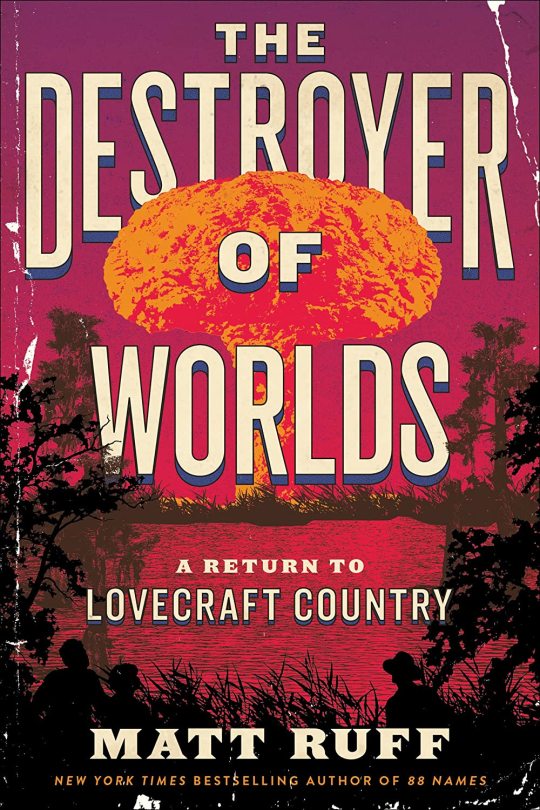
In Lovecraft Country, Matt Ruff pulled off a genius inversion: retelling the racist horror tales of HP Lovecraft in reverse, from the perspective of the Black people whom Lovecraft so viciously loathed, casting as villains the white supremacist sorcerers whom Lovecraft turned into heroes:
https://memex.craphound.com/2016/02/16/matt-ruffs-lovecraft-country-where-the-horror-is-racism-not-racist/
If you’d like an essay-formatted version of this post to read or share, here’s a link to it on pluralistic.net, my surveillance-free, ad-free, tracker-free blog:
https://pluralistic.net/2023/02/21/the-horror-of-white-magic/#anti-lovecraftian
Country was adapted by Jordan Peele into a spectacular TV serial — no mean feat, given how much of Ruff’s brilliant characterizations relies on the novelist’s trick of giving readers direct access to characters’ thoughts and internal states, something that is off-limits to screen adaptations without recourse to cheap tricks like voice-overs.
Today, Harpercollins releases The Destroyer of Worlds, a spectacular followup to Country that revisits the characters, setting, and supernatural dread of the original:
https://www.harpercollins.com/products/the-destroyer-of-worlds-matt-ruff?variant=40490768957474
Country was structured as a series of linked novellas, each one picking up where the previous left off, with a different focal characters. Destroyer is a much more traditional braided novel, moving swiftly amongst the characters and periodically jumping back in time to the era of American slavery, retelling the story of the settlement of the Great Dismal swamp by escaped slaves:
https://en.wikipedia.org/wiki/Great_Dismal_Swamp_maroons
Few writers can manage a cast of characters this large with Ruff’s deft hand — they are likable, individual, and we root for all of them as they strive to save themselves from the eldritch forces that can only be temporarily vanquished.
It makes for an extremely fast-paced, high-stakes read, as we ping-pong around the Jim Crow south and all the way to the end of the universe. The white sorcerers of Country are still in the frame, as ghosts and exiles — a parable for the tireless nature of white supremacist hatred, and of the festering sores on the American body politic that have suppurated and multiplied in the absence of cleansing truth and reconciliation.
HP Lovecraft was a gifted writer, but he was not a good person. Even by the standards of his day, his racism was particularly vicious, and Lovecraft mixed that viciousness with his prodigious talents to paint the targets of his loathing in the most visceral, cruel light. It was so ugly that even Robert E Howard lectured him about it:
https://web.archive.org/web/20140701000000/http://read.barretta.cc/post/89727018274/you-express-amazement-at-my-statement-that
“People claiming to possess superior civilization have always veneered their … looting, butchering and plundering… by [claims] of art, progress and culture.”
And yet, Lovecraft’s work made a substantial, undeniable mark on the field, and the literary techniques he invented, advanced and/or perfected are woven into our literature. Rather than deny this influence, some of the field’s best writers have sought to redeem it, wresting Lovecraftian techniques from Lovecraftian ideology.
Ruff is part of that tradition, but by no means all of it. 2019 saw the publication of NK Jemisin’s stunning The City We Became, an anti-racist Lovecraftian tale in which New York City’s glorious riot of race, color, language and viewpoint is set to be devoured by a conservatisizing, homogenizing eldritch power from another universe:
https://pluralistic.net/2021/01/09/the-old-crow-is-getting-slow/#i-love-ny
Exicitingly, City We Became now has a sequel, The World We Make, which has gotten rave reviews:
https://www.hachettebookgroup.com/titles/n-k-jemisin/the-world-we-make/9780316509893/
The literature of anti-racist, anti-fascist Lovecraftian horror is a broad and exciting one, including RPGs:
https://www.kickstarter.com/projects/1122788890/lovecraftesque/description
And David Nickle’s essential duology, Eutopia (2011):
https://boingboing.net/2015/03/10/eutopia-horror-novel-about-lo.html
and Volk (2017):
https://memex.craphound.com/2017/10/11/volk-a-sinister-lovecraftian-tale-of-eugenics-naziism-and-radiant-abomination/
Nickle has written well and extensively about Lovecraftian horror and race:
http://davidnickle.ca/dont-mention-the-war-some-thoughts-on-h-p-lovecraft-and-race/
And the last word on Lovecraft scholarship is certainly Les Klinger’s The New, Annotated HP Lovecraft (2014)
https://wwnorton.com/books/9780871404534
Attentive readers will recall that Klinger is the Sherlockian attorney who successfully defeated the Doyle estate’s copyfraud claims that the Sherlock Holmes stories were still in copyright:
https://pluralistic.net/2022/12/20/free-for-2023/#oy-canada
The benefits from the works of Doyle, Lovecraft, and all other authors eventually return to the public domain is neatly illustrated in this new Lovecraftian creativity. If Lovecraft had to stand alone, uninterpreted and unrebutted, we would lose his brilliance along with his wickedness. But because Lovecraft now belongs to all of us, he can be reworked, challenged, argued over, problematized, and preserved, even if he can never be redeemed.
[Image ID: The cover of Matt Ruff's 'Destroyer of Worlds.']
#pluralistic#matt ruff#horror#science fiction#race#reviews#books#gift guide#green book#lovecraft country
86 notes
·
View notes
Text
if you talk about like. classical liberal or early american political thought and you never bring up slavery or empire you are actually violently intellectually dishonest. it should just be unthinkable that you could say something like the following with a straight face.
Individual liberty, whether rugged or not, is certainly at the heart of the American political project, expressed in its founding documents, such as the Declaration of Independence.
(Bruce K. Ward, Right Stuff, Literary Review of Canada January-February 2024)
individual liberty was at the heart of the American political project? how do we still let this level of open revisionism slide? it was a slave state. what next? "at the heart of the third reich was a commitment to the prevention of arson"? you should be forced by the merest ten seconds of thinking to encounter the real point, which is that american political thought is characterised by a contradiction between a nominal focus on liberty and an actual violent tyranny, not just a potential tyranny resulting from "too much" democracy.
It was Rousseau himself who acknowledged that in the liberal state he envisaged, based on the rightness of the general will, the recalcitrant would be “forced to be free.” In its extreme Communist form, this apotheosis of the state was to include the attempt, in the words of the Czech Canadian novelist Josef Skvorecky, to “engineer human souls.”
this has never been a problem. "we made the people too free and now they've enslaved themselves" has never happened. it's a conservative rhetorical ploy, it's an inversion in thought of the true premise - the thought that "subject and a sovereign are clean different things," the fear of the rabble that needs to be held down.
this should be the true struggle of modern liberals - how do you reconcile a universalist democratic ideal with the fact that the existence of anglosphere parliamentary democracy is fraught with its relationship to empire, the monarchy and landownership at home! i know this is me being mad about effectively marxist 101 problematization of the ideological framing of western democracy. but is the liberal project so weak that it simply cannot sustain itself without this kind of self-deception? is a liberalism that is actually committed to those values in some sense structurally impossible?
#examining the notion of 'democracy under threat' through the lens of democracy's effective historic nonexistence would be very interesting#the burden of the chosen art form#i guess
14 notes
·
View notes
Text
9 Ways to Tighten Up Your Novel’s Middle

Every year, we’re lucky to have great sponsors for our nonprofit events. Scrivener, a 2022 Camp NaNoWriMo sponsor, is an award-winning writing app that has been enthusiastically adopted by best-selling novelists and novices alike. Today, Scrivener director Julia Pierce is here to share some tips on writing your story’s middle:
We’re midway through Camp and around now, some of you may be starting to experience the curse of the saggy middle. This isn’t just a euphemism for what happens when the need to meet your daily word count target becomes all-consuming and takes precedence over your daily exercise routine. Nope, it’s that bit where the doubts about your story’s structure start to creep in… Is that storyline really as gripping as you first thought? Would the hero really make that choice…?
Unfortunately, writing the midsection of a novel is tricky—it’s where the hard work happens, the plot is driven on, characters grow and plans are tried (and fail). With this part taking up around 50% of the word count, a good rate of momentum is vital to carry the reader with you from your perfect beginning to the novel’s climax. So, how can you pep up your prose? Here are some tried and tested methods:
1. Get your outline in order.
Even if you’re a pantster, a rough outline can really help you keep on the right path. Create plot points on index cards (or virtual index cards) to view your ideas and where you plan to go with them. Does each point flow logically with the final goal in mind?
2. Check your antagonist.
Do they draw the reader to them? Is their motivation strong, and do they have enough power to make their anti-goal achievable? A good antagonist is sympathetic—but remember, not more so than the protagonist.
3. Make it complicated....
Is your protagonist meandering from A to B? Why not make their life difficult? Throw in obstacles—then make them bigger and more complicated. With every heroic step forwards, does the villain also come closer to a win? Crank up the emotion. Make that hero earn their prize.
4. ...But not too complicated.
Nobody loves a story where the protagonist can’t catch a break. Add some wins for them, however small. Keep a spark of optimism alive to make their continued motivation to succeed believable.
5. Fuel inner conflict.
No matter how determined your hero is, a good dose of inner conflict is the ideal tool for throwing them off the right path, raising the stakes and leaving the reader rooting for them to overcome their turmoil. Pull them in opposite directions between their inner and outer goals - a struggle is compelling reading.
6. Raise the stakes.
What does the protagonist have to lose—or gain? Reinforce and heighten this as the story goes on, and remind your reader of the consequences of various outcomes.
7. Weave in a subplot.
Show the reader (and hero) the dangers of failure through a secondary character’s eyes.
8. Throw in a midpoint reversal.
An unexpected turn of events throws the plot sideways: shock your readers or tease them with a will it / won’t it event or a secret. Change up what the reader thinks they know to make the end unpredictable.
9. If all else fails...
If you still can’t find the right way to firm things up, reset your brain by going for a walk, taking a nap, or playing a word game to revive your energy levels or maybe find the inspiration you need. Often, just disengaging your conscious mind and encouraging your subconscious to mull over your plot can be enough to tip you over into a flow state once again. Best of luck!
Julia Pierce is a former journalist who now writes for fun. She’s also a director at Literature & Latte, creators of the writing app Scrivener—the perfect tool for planning out, adding structure to or editing your book. Get some writing inspiration on the Write Now With Scrivener podcast here (https://podcast.scrivenerapp.com)
All Camp NaNoWriMo participants receive a 20% discount on Scrivener’s regular license by entering HAPPYCAMPER22 into the coupon code text field in the web store through August 7th, 2022. If you want to try out Scrivener first, you can download a free trial that will run through August 7th, 2022.
Top photo by patricia serna on Unsplash
#nanowrimo#writing#amwriting#camp nanowrimo#writing advice#by nano sponsor#scrivener#julia pierce#middle
263 notes
·
View notes
Text
the thing is, there's this jarring push and pull between the narrating voice and the focal point of the narrating voice, like this - the narrator can say things like "feminism" (a word that's not used in britain until fifty years after the story is set) or use modern political terms and phrases, and that's fine, because when you're writing nonfiction (or fiction structured like nonfiction) about an event in the past it's customary to do such things; you're writing for a modern audience and it's expected that you will be using terms familiar to them. BUT the book also has a pretty consistent close-third point of view, and when using a close third-person, narration *usually* hews pretty closely to terms and vocabulary that the protagonist it's following knows and uses. which in this case is the vocabulary of a polyglot in the 1830s specifically, and so like i said, there's this uncomfortable push and pull between a contemporary nonfiction tone, warring for room with a novelistic close-third POV.
and it doesn't work out well; they don't complement one another easily and what happens instead is that the close-third feels, despite the fact that it is a pretty close perspective, oddly detached, distant, despite relaying everything robin thinks and feels. and the academic nonfiction tone feels disjointed because the reader, if they're versed at all in the subjects the book is built around, can't stop thinking about which parts of the narration don't fit into the close point of view. and sometimes it bleeds into the dialogue, too, so that the 1830s college students have conversations not out of place among 2010s college students, vocabulary and all, and i'm NOT the first person to say that this feels goofy in a book that's all about language and vocabulary, nor am i unaware that some readers defend it as a deliberate choice of language and vocabulary. what if the only two things that are different in this alternate history are a) silver magic and b) use of contemporary political lanugage? because the book is technically a fantasy, you COULD say, well, what if all those words and phrases were just invented earlier? it's an alternate history, anything's possible. but i think it's a lot simpler than that: i think this book could've just used a couple more passes before being considered done, and maybe then the people who are nitpicking (me included) would have less to nitpick about. a more consistent hand in terms of tone would've made a difference.
another thing: i certainly sympathize with the author's assertion that some readers need to be spoon-fed, and that those who balk most intensely at the book's occasional heavy-handedness are those who are interested in nobody saying harsh truths where they have to see it. but i'd also counter: those people are never going to like a book like this anyway. they'll be the people writing racist reviews and claiming that anyone who reviews the book negatively agrees with them but is just too liberal to admit it; this book is not ever going to reach those people, no matter how simply or thoroughly it structures its argument. for the rest of the audience, it can afford to have more nuance, and those readers will appreciate it. i hesitate to say it's condescending, but also, it's not...not condescending either.
so i wanted to like this book. god, i did. and i think if it had been through even one more editing pass, i might like it more than i do! but as it stands; with the awkward imbalance between tone and point of view, the fact that is very thin for 500 pages, and - this is just a me thing, because i'm an extreme stickler for voice, but it's still a thing - the prose was not near as rapturous as the best reviews led me to believe...i don't know. this book just wasn't it. or, at least, not all of it.
7 notes
·
View notes
Text
CW: MAJOR SPOILER ALERTS FOR THE MOVIE “THE PORNOGRAPHER: PLAYBACK.” LONG POST!
I feel like there’s been something humming in the wind lately around the franchise of The Novelist/The Pornographer. We’ve seen a cameo by the incomparable Izuka Kenta in Candy Color Paradox, Yoshida Munehiro is about to cameo in The End of the World, With You, and The Novelist’s Twitter account has been buzzing with news about new DVDs and theater showings of the last installment of the franchise, The Pornographer: Playback. Miki Koichiro, the screenwriter and director of the franchise, has TWO shows out at the moment, the aforementioned TEOTWWY, as well the sessy-sessy Raise de wa Chanto Shimasu, the three seasons of which I am dying to watch as soon as there’s a solidly bad season of QL sometime in the future (which seems like will never happen in my lifetime, bless all these amazing QLs for coming out every season!). Couple all of this with recent reviews of the OG Novelist and Mood Indigo series by the fabulous @gillianthecat (here) and @respectthepetty (here), and I was happily reminded of good times of watching all of these parts way way back when I first discovered QL/BL in 2019/20.
When the amazing @lurkingshan commented on a stray thoughts post by @bengiyo that she had seen The Pornographer: Playback, I was VERY intrigued. With HUGE thanks and big ups to @lurkingshan, I watched it over the weekend, and here are my thoughts! I’m going to put up a break to keep y’all from getting spoiled if you want to avoid it.
First off, let’s make sure we know what all the installments are, and that we’ve watched what we’ve needed to get to the movie. We have:
1) 2018 -- The Novelist: the original meeting between student Kuzumi Haruhiko and adult author Kijima Rio
2) 2019 -- Mood Indigo: a prequel depicting the sexual engagements between Kijima Rio and his classmate, Kido Shirou
3) 2021 -- The Pornographer: Spring Life: a very short vignette set 2 1/2 years after Kuzumi and Kijima first met. They’re now in a long-distance relationship, and Kuzumi visits Kijima in the countryside at Kijima’s sister’s house, where he’s living as he continues to write.
(The first three works are all available on Viki.)
So I was BEYOND THRILLED to get to watch the movie and see all of this wrap up. If most of y’all only watched up to Mood Indigo, you saw Kijima re-meet with Kuzumi. Kuzumi, at that time, was just becoming a successful employee in the advertising business.
Spring Life hints that things are still going well for Kuzumi, and that he was looking forward to spending a summer break with his long-distance boyfriend. Most notably, the piece ends with Kuzumi jumping from honorifics, by asking Kijima if he (Kuzumi) could call Kijima “Rio-san,” which we know indicates intimacy. Kijima’s like, whatever you’d like, and the smile on Kuzumi’s face takes up the whole screen, it seems.
So then we finally get to The Pornographer: Playback, which begins during the same summer break. Continuing with the theme and mood that I like to call melosexual (the music alone of this franchise is SO INTENSE, let alone the heaty sex scenes), the guys head to a love hotel and do their thang. At the end of the night, as they’re getting dressed, Kijima finds a business card in Kuzumi’s wallet for a hostess club that Kuzumi is forced to go to with work colleagues.
Without divulging a tremendous amount more about the plot at this moment, the movie is basically structured around the push-and-pull of Kijima’s inability to move authentically closer to people -- not just Kuzumi, but also his sister, who Kijima disappoints repeatedly by backing out of family events.
Kijima’s essentially paralyzed by fear and insecurity that he is a terrible person -- one that is not worthy of love. His sister is so overwhelmingly angry about it that she essentially kicks him out of the house, and blames their mother for never calling him out on his namby-pamby bullshit (at least, that’s in her eyes). At another point in the movie, he frustrates Kuzumi so much that Kuzumi walks out on the relationship and heads back to Tokyo, a surprising move for the otherwise always-devoted younger companion.
It takes a serious scolding by a hospitalized and flirtatious owner of a karaoke snack bar (you read that right) for Kijima to get his damn head back on straight and fight for his relationship with Kuzumi. (And, HILARIOUSLY, I was cackling -- in the process of this, Kijima has KIDO -- KIDO OF ALL PEOPLE -- call Kuzumi on Kijima’s behalf, to get Kuzumi to talk to Kijima to reconcile. KIJIMA used KIDO to call KUZUMI. Lord.)
Okay, so what I’m really getting at here is that the movie showed that the whole franchise was missing two KEY elements that the first three parts did not have: comedy and authentic emotional connection. There was actually a little comedy in this! Besides the whole Kido thing (which I’ll get back to in a minute), there were a couple of bumbling moments that were designed to elicit some lightness, mostly with the snack bar owner, a flighty gal with a lovely son who tries to hook up with takes Kijima under her wing.
About the other element: we FINALLY, FINALLY SAW KIJIMA SHOWING SOME EMOTION ABOUT SOMETHING. He really regretted letting things go to shit with Kuzumi. Kuzumi called Kijima out for wasting Kuzumi’s time to leave work in Tokyo and visit the countryside. Kuzumi felt like Kijima wasn’t taking him seriously, and was constantly pulling back. I mean -- Kijima was living away from Kuzumi.... for what, exactly? It’s not ever clearly explained. And Kuzumi got angry and left.
This is a great time to mention the excellent post by @emotionallychargedtowel on pursuer-distancer dyads, because the Kijima-Kuzumi push-and-pull in this movie perfectly defined this dyad dance. When Kuzumi got fed the fuck up and pulled way back -- Kijima finally stepped into his emotion and owned his desire to be with Kuzumi.
Honestly, in the first three installments of this franchise -- I felt like Kijima really didn’t talk too much. I felt like he was far more defined by his brooding, his letting the winds take him to where he was at any given moment, ragingly sexual and lonely all at once. He simmered -- he was flinty, defensive, and used his sexual energy to dominate and burn the emotional energy all around himself.
The movie showed a TOTALLY different side of him. To me, the movie showed that his relationship with Kuzumi, long distance as it was, HAD a softening impact on him -- even to the point that Kijima dropped everything he was up to in the countryside to head to Tokyo and fight for the relationship. Kijima needed to be rendered totally alone, one last time, to come to realize that the connection he had with Kuzumi was worth fighting for.
And, yes, in the process of it, he brought back Kido in the mix -- which was also seriously poignant.
REALLY SERIOUS SPOILER HERE, y’all, especially if you love/hate/gaaahh that awful devil, Kido!
.
.
.
.
.
.
Kido asks Kijima if they could have ever had the same kind of relationship as Kijima is fighting for with Kuzumi! AAAAAHHHH! AND! AND! KIJIMA SAYS, no way. We’re too similar.
WHICH IS TOTALLY TRUE! They’re both self-indulgent, selfish assholes! I mean, after that insane sex scene in Mood Indigo, Kido just fucking LEFT -- he just LEFT, and GOT MARRIED, and HAD A KID, and was like, peace the fuck out, I can’t actually be my honest queer self with you, Kijima, because I think that’s actually abnormal (oh, Kido, you internally messed up piece of shit, AAAHHH).
Whereas, as beautifully analyzed in @respectthepetty‘s review, Kuzumi represents honesty and openness -- the kind of traits that Kijima doesn’t have, but is aspiring to, in order to be with Kuzumi. AAAHHH.
I was seriously like, WHOA, WHAT AM I WATCHING HERE, at that moment. AND, AND? At the end of that scene? Kido wishes Kijima good luck. And says: “You better keep Kuzumi-kun. He’s a valuable asset.” Of course, what a Kido thing to say -- that humans are assets, commodities. But -- he sends Kijima off with good wishes.
And then.
Kijima reunites with Kuzumi. He called Kuzumi by Kuzumi’s name, Haruhiko. AND -- holy shit, y’all, my mind was blown. He tells Kuzumi that he loves Kuzumi by saying ichiban aishiteru.
I tell you, I was FLOORED. All throughout the movie, I’m like, “dang, Kijima keeps talking and talking, and I just don’t remember him TALKING all that much before in the other three series.”
And then he DROPS the ichiban aishiteru! And I think BOTH me AND Kuzumi are BOTH LIKE, WHAT THE DAMN, DUDE!
I’ve spoiled a LOT, but I won’t say more after this, except to say the following:
The ending was one of the happiest, LOVELIEST endings of a drama/movie I’ve seen in QL. Oh. my. god. Talk about SATISFYING. EVERY. CHECKBOX. MARKED. Takezai Terunosuke and Izuka Kenta were MAGNIFICENT. I had SERIOUS tears. They got in everything -- they got the heat, they got in FAMILY, LOTS OF FAMILY, GORGEOUS shots, FEELINGS. ALL OF IT.
@bengiyo made an excellent point recently in one of his reviews of TEOTWWY that it seems like Japan lately has only been doing high heat in stories about death. It’s an accurate point: all of the pieces of The Novelist came out well before TEOTWWY and Eternal Yesterday, the two most recent shows about death that had heaty elements. I kind of wonder about something. I wonder if other directors and screenwriters are like.... The Novelist did it the best. We can’t mess with that standard.
Because -- Takezai’s and Izuka’s acting in those scenes is BEYOND EXCELLENT. It was NECESSARILY EXCELLENT to end this franchise on such a warm, happy, COMPLETE high note.
Now that I can look back on all four parts of the whole franchise, what Miki Koichiro did for us by way of Kijima was to show the whole-scale growth of a man vis à vis love. This guy, Kijima -- a brilliant writer who was influenced by a sexually provocative teacher, someone who was left inexplicably behind by a tormented, internally homophobic lover/benefactor -- felt he was deserving of nothing. And then he found his something in Kuzumi. He nearly destroyed the relationship, multiple times. And as he fell and slipped while climbing the hill of happiness, he was able to get a stronger and stronger grip each time he tried harder. And he was supported by people around him, including family and random friends, to give him lift.
This movie was a lot more straightforward than I had honestly expected. I 100% expected more of the melosexualness of the first three parts of the series. Instead, what I got was a WHOLESOME (I can’t believe I’m using that word, but it’s true!), complete, and uplifting story of a man finding his true happiness in his lover, his companion, his chosen family. All of it certainly laced with heat, for sure, but also very deep, very convincing love.
It was utterly fabulous. It might be too emotional, maybe too family-oriented for some who preferred the dark heat of the previous installments. But Playback, in my eyes, was a perfect closing note for a man who honestly deserved happiness after the work, and the SELF-CHANGE he put in, to get love in the first place. If you are a fan of this whole series, and can get your hands on the movie, I beg you to watch it, even just for one of the best happy endings you’ll ever see in QLs.
#spoilers#the novelist#the pornographer#the novelist: playback#the novelist playback#the pornographer: playback#the pornographer playback#mood indigo#the novelist: spring life#the novelist spring life#the pornographer: spring life#the pornographer spring life#takezai terunosuke#izuka kenta#yoshida munehiro#miki koichiro
67 notes
·
View notes
Text
Japanese Reading Resources
【Free (mostly) resources】
Syosetu - A site where novelists can post their novels. They are free to read even without an account.
Matcha - A web magazine which introduces Japan for visitors. It introduces not only sightseeing spots all over Japan but also food, shopping and other useful information that you should know when you are travelling to Japan.
If you are still a beginner in Japanese or not a high level there also is a Matcha Easy. Both are free.
Satori Reader - Probably my favourite resource for reading. You can choose stories based on your level and also adjust how many kanji will be featured. Grammar and unusual sentence structure is annotated to help you understand the sentence fully and the thought process why the sentence structure is the way it is.
Satori Reader also has a built-in SRS which is just awesome because it not just tests you on the word but it shows the word and the whole sentence you bookmarked it from.
Free to a certain degree. If you want to access full stories, usually the first episode is free, you will have to get premium which is 9€/month or 90€/year. There are often sales though eg. during New Year's or Golden Week.
Pixiv - Not much to say about Pixiv tbh. You have to make an account to be able to access the content on there but then you are free to roam and discover art, manga and novels based on what you like.
【Where to get books, manga and whatnot from】
bookwalker.jp - Huge selection of ebooks and manga. Offers a lot of manga and books for free everyday which you can keep them forever once they are in your library. Downside, no downloadable app to read books offline in. Upside, you can highlight and colour code words, grammar, phrases you want to remember etc. (Only works with novels though and not manga...grrr)
cmoa.jp - Same as Bookwalker, huge selection of books and manga. Offers many works for free everyday too. I haven't used it that much yet so I am not sure but they seem to be time restricted too- I don't know if you can keep them after the time-period ends. Downside, you can only put bookmarks but not highlight individual words, etc. from what I have seen. Upside, downloadable app where you can also download your books to and read offline.
Update 3.7.2023: The PC app is no longer being supported. The webapp, the iOS and Android app are though the phone apps don't seem to be available internationally (at least I can't find it on my android device).
Feel free to reblog and add your own resources you use(d) and like!
95 notes
·
View notes
Text
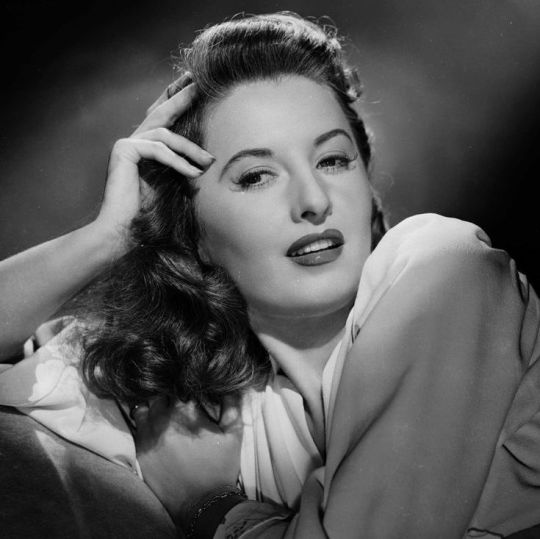
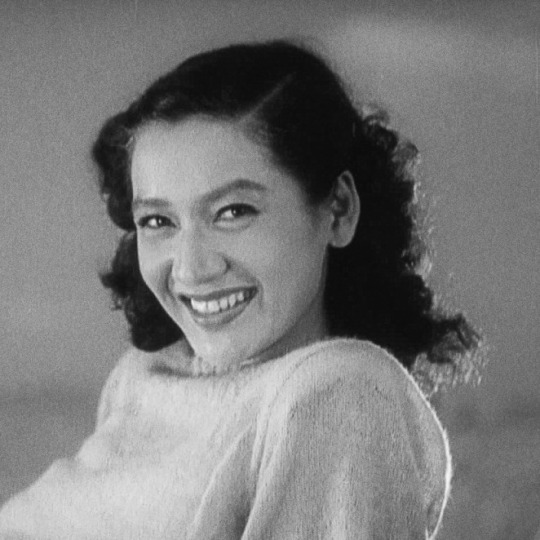
Propaganda
Barbara Stanwyck (Ball of Fire, The Lady Eve, Double Indemnity)—I hope someone else has submitted better propaganda than I because I don't want my girl's prospects to rest on me just yelling PLEASE VOTE FOR MY TERRIBLE HOT GIRLFRIEND. She is a delight in everything! She is often a sexy jerk! (It's most of the plot of Baby Face!) Even when she plays a "good girl" (as an example, Christmas in Connecticut, which more people should see) she's still kind of a jerk and I love her for it! She won't take men's shit and she sure wouldn't take mine!
Setsuko Hara (Tokyo Story, Late Spring, The Idiot)— "'The only time I saw Susan Sontag cry,' a writer once told me, his voice hushed, 'was at a screening of a Setsuko film.' What Setsuko had wasn’t glamour—she was just too sensible for that—it was glow, one that ebbed away and left you concerned, involved. You got the sense that this glow, like that of dawn, couldn’t be bought. But her smiles were human and held minute-long acts, ones with important intermissions. When she looked away, she absented herself; you felt that she’d dimmed a fire and clapped a lid on something about to spill. Over the last decade, whenever anyone brought up her lips—'Setsuko’s eternal smile,' critics said, that day we learned that she’d died—I thought instead of the thing she made us feel when she let it fall." - Moeko Fujii
This is round 4 of the tournament. All other polls in this bracket can be found here. Please reblog with further support of your beloved hot sexy vintage woman.
[additional propaganda submitted under the cut.]
Setsuko Hara:
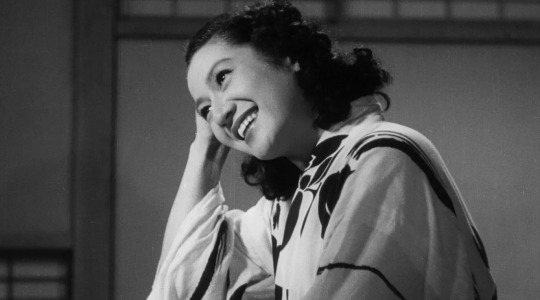
One of the best Japanese actresses of all time; a symbol of the golden era of Japanese cinema of the 1950s After seeing a Setsuko Hara film, the novelist Shūsaku Endō wrote: "We would sigh or let out a great breath from the depths of our hearts, for what we felt was precisely this: Can it be possible that there is such a woman in this world?"

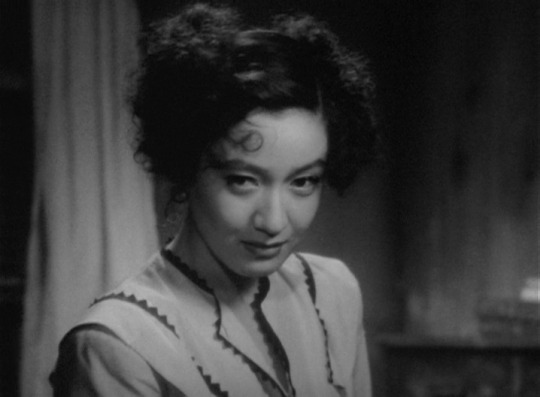
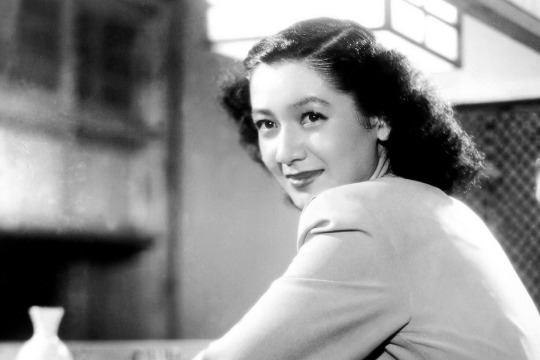
One of the greatest Japanese actresses of all time!! Best known for acting in many of Yasujiro Ozu's films of the 40s and 50s. Also she has a stunning smile and beautiful charm!

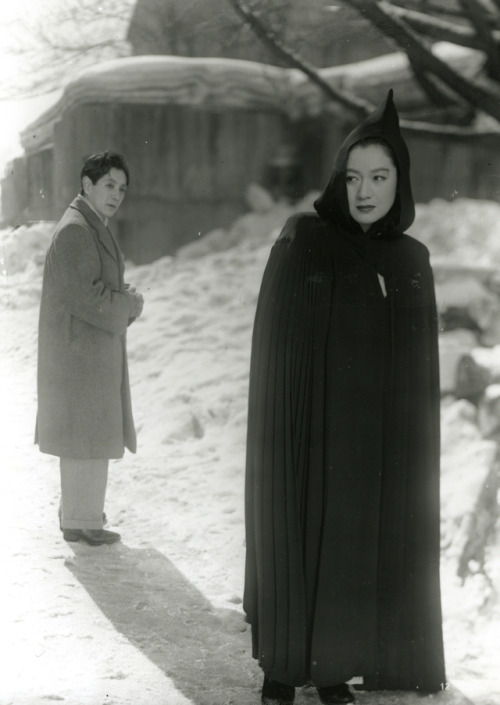
Linked gifset
Linked gifset 2
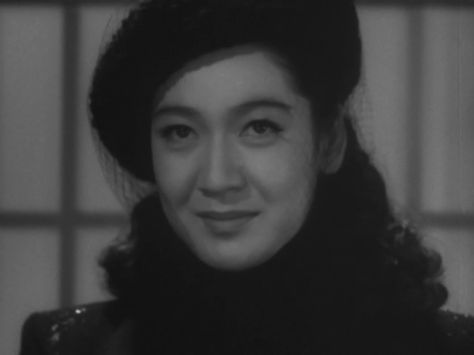
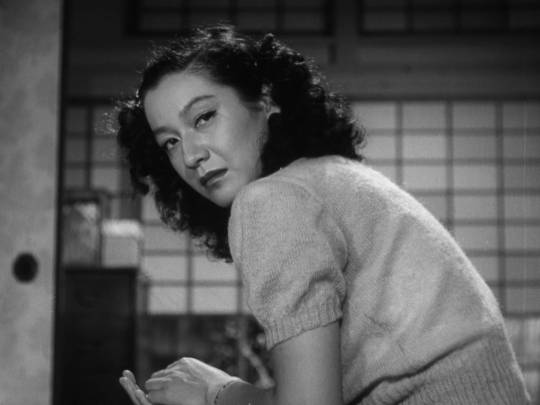
She's considered by some to be the greatest Japanese actress of all time! In Kurosawa's The Idiot she haunts the screen, and TOTALLY steals the show from Mifune every time she appears.
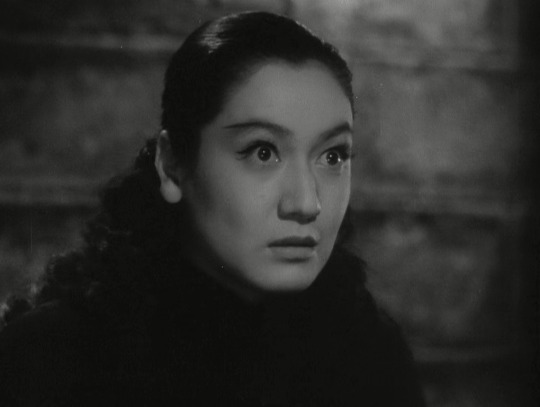
She's considered by some to be the greatest Japanese actress of all time! In Kurosawa's The Idiot she haunts the screen, and TOTALLY steals the show from Mifune every time she appears.
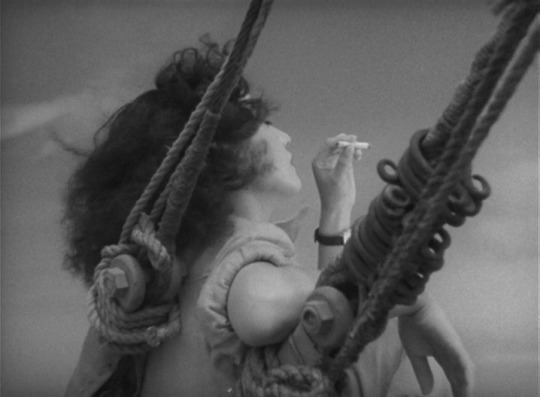
"No other actor has ever mastered the art of the smile to the same extent as Setsuko Hara (1920–2015), a celebrated star and highly regarded idol who was one of the outstanding actors of 40s and 50s Japanese cinema. Her radiant smile floods whole scenes and at times cautiously undermines the expectations made of her in coy, ironic fashion. Yet her smile's impressive range also encompasses its darker shades: Hara's delicate, dignified, melancholy smile with which she responds to disappointments, papers over the emotions churning under the surface, and flanks life's sobering realizations. Her smiles don't just function as a condensed version of her ever-precise, expressive, yet understated acting ability, they also allow the very essence of the films they appear in to shine through for a brief moment, often studies of the everyday, post-war dramas which revolve around the break-up of family structures or the failure of marriages. Her performances tread a fine line between social expectation and personal desire in post-war Japan, as Hara attempts to lay claim to the autonomy of the female characters she plays – frequently with a smile." [link]
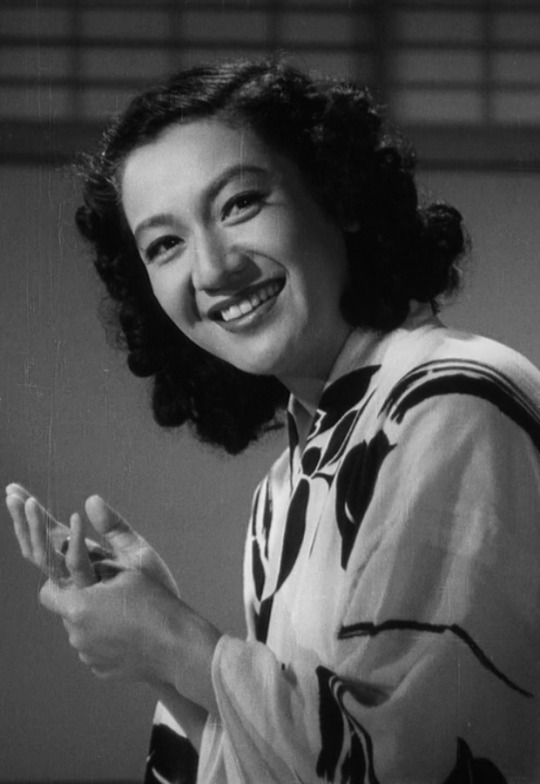
Leading lady of classic Japanese cinema with a million dollar smile
Maybe the most iconic Japanese actress ever? She rose to fame making films with Yasujiro Ozu, becoming one of the most well-known and beloved actresses in Japan, working from the 30s through the 60s in over 100 hundred. She is still considered one of the greatest Japanese actresses ever, and in my opinion, just one of the greatest actresses of all time. And she was HOT! Satoshi Kon's film Millennium Actress was largely based on her life and her career.
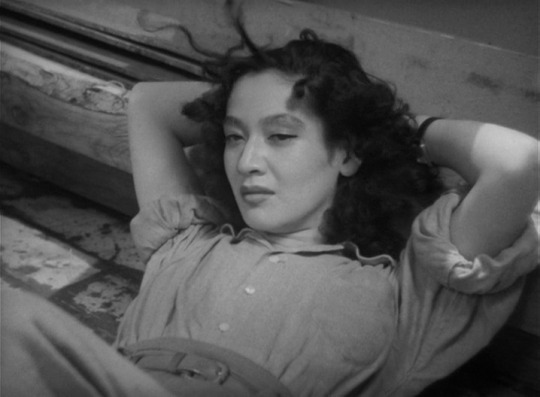
Barbara Stanwyck:
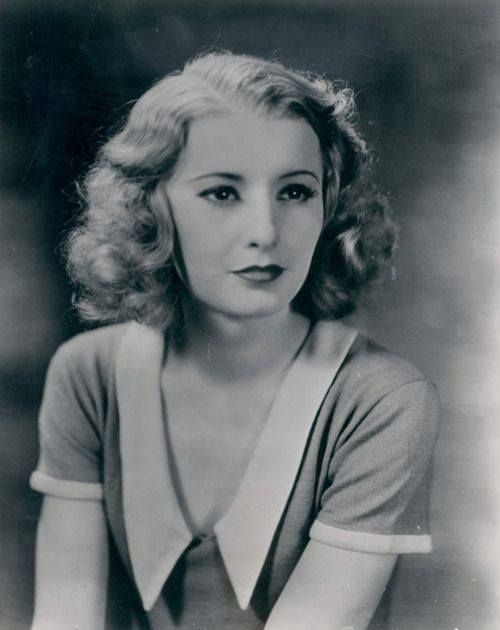
"THE leading lady of the golden age of hollywood. One of the only actresses to work independent of a studio, making short-term contracts that enabled her to make movies wherever she wanted. She had so much range, and could act in basically any genre. She's been rumored to be a lesbian literally since she was active in Hollywood; most notable is the rumor that she had a long time on-and-off relationship with famously bi Joan Crawford, her "best friend" for decades (They lived right next door to one another). She also lived with Helen Ferguson, her "live-in publicist" for many years. She was the quintessential femme fatale in Double Indemnity, and really pushed sexual boundaries in her pre-code films like Baby Face, and the famous screwball The Lady Eve, where she plays basically a downlow domme. Allegedly, when a journalist asked her if she was a lesbian, she straight up threw him out of her house. She even played a lesbian in Walk on the Wild Side"
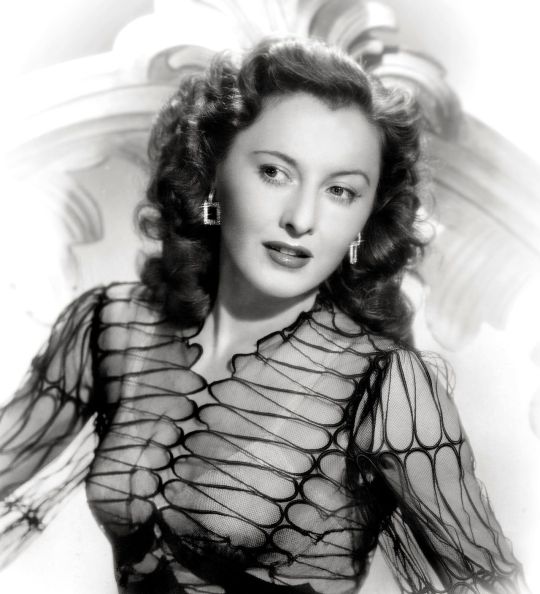
"THE queen of screwball comedies. I adore her, I'd kill for her, I will cry if she's not gonna win this poll."

"listen ok she had awful politics she was a mccarthyist right wing wacko BUT she's so incredibly hot that i've deluded myself into believing i could fix her. if you see her onscreen she carries herself in a way that's just so effortlessly sexy AND she has just a stunning face. imo she was at her hottest in the 1940s but even as early as the late 1920s she had a rly captivating screen presence and just a beautiful face, and then post-1950 she was just irresistibly milfy so really she was just always incredibly hot. she was also an incredibly talented actress who was equally stellar in melodrama, film noir, and unhinged screwball comedy. the blonde wig they made her wear in double indemnity is notoriously silly looking but she still looks sexy in it so that's gotta count for something. i've watched so many terrible movies just for a chance at seeing her that i think her estate should be paying me damages."
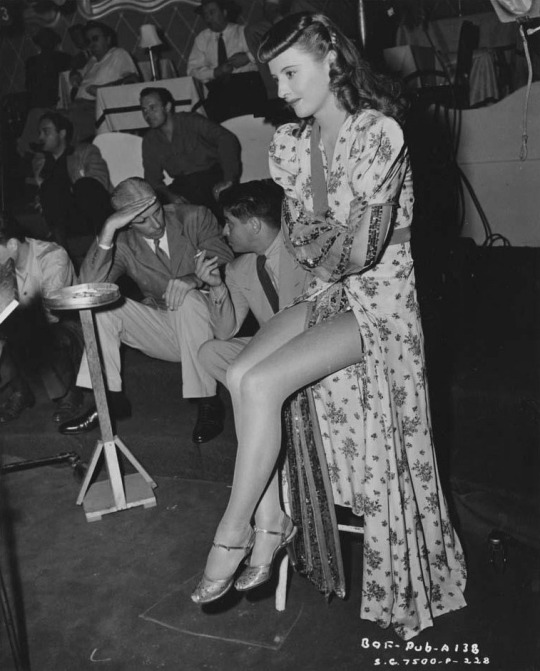
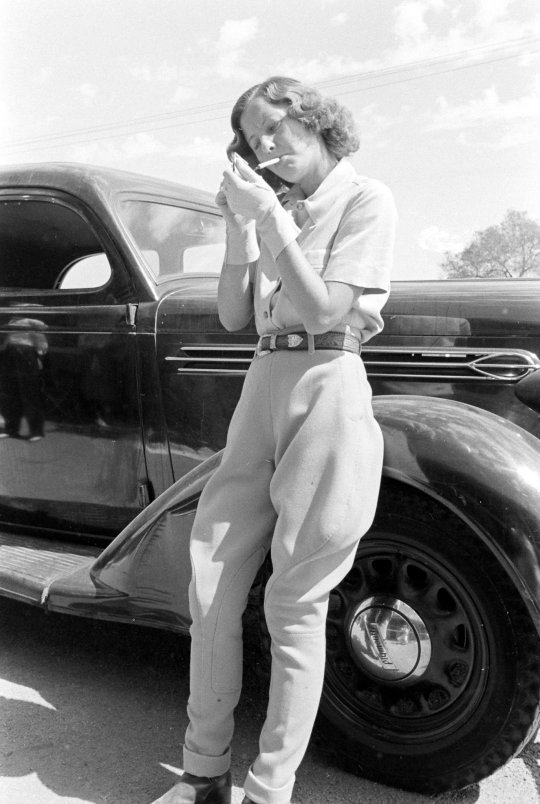
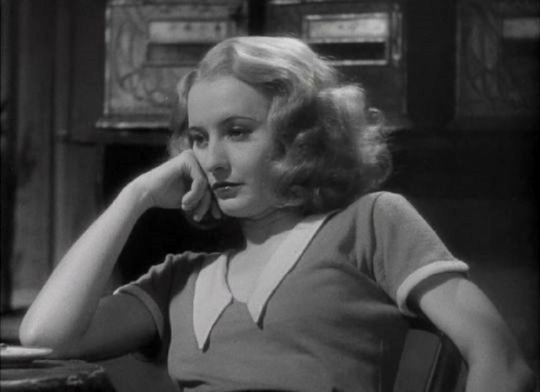
"Not often thought of for her sultriness, Barbara Stanwyck was incredible in that she could actually choose to be hot if the role called for it, and then have a glow-down to look ordinary for another role. She wasn't the most beautiful or effervescent, but damn did she have rizz. Watch her with Gary Cooper in Ball of Fire teaching him about "yum-yum" or with Henry Fonda in The Lady Eve whispering huskily into his ear."
youtube
"She is always the smartest woman in the room. Watching her play Henry Fonda like a befuddled fiddle in The Lady Eve was a highlight of my life. Femme fatale in Double Indemnity, comedy queen in Ball of Fire. She can do anything."
"She was part of my gay awakening"
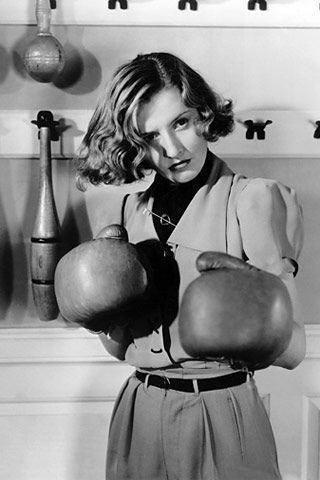
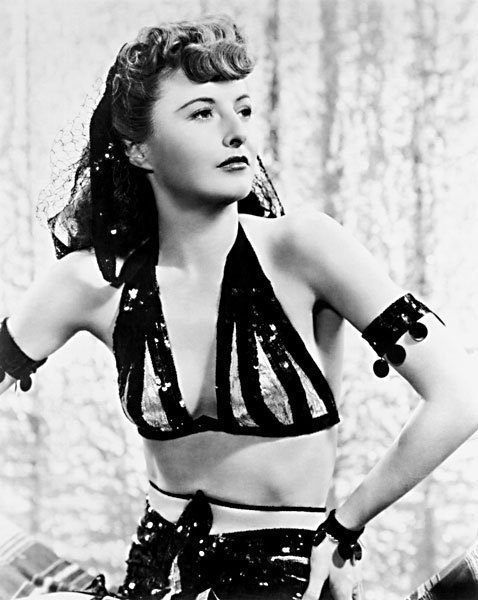
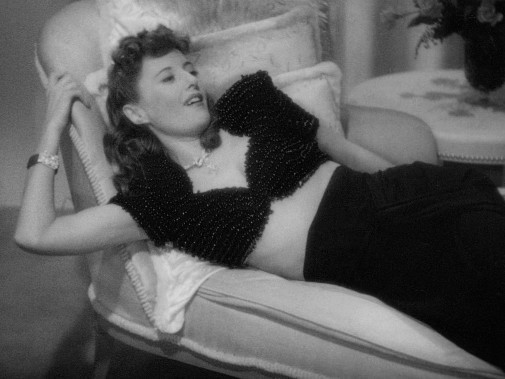
"SHE'S A PRE-CODE QUEEN. She did everything, drama, comedy. The most beautiful woman in the world to watch weep. Beg for to step on you with those legs. Fun Babs story: Ginger Rogers was offered the role in Ball of Fire but said, “Oh, I would never play that part, she’s too common.” So they called Barbara Stanwyck and they said “We offered this to Ginger Rogers but she’s turned it down, would you be interested?” And she read the script and she said; “You bet! I LOVE playing common broads. [link]"
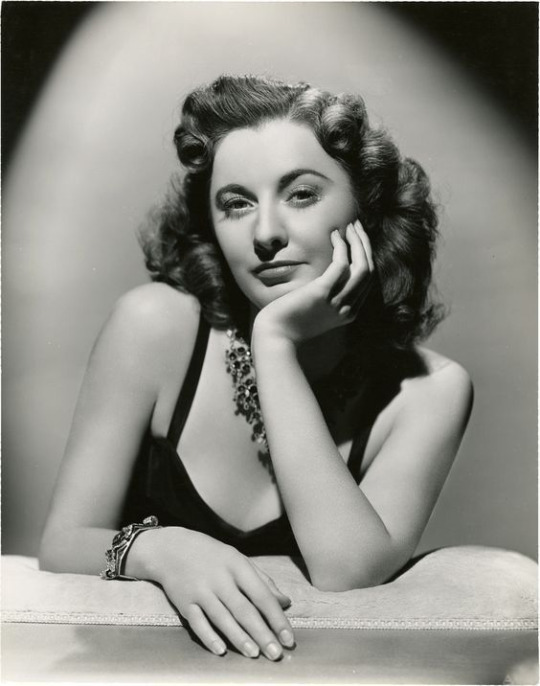
296 notes
·
View notes
Note
what do you think it means that all the tragic characters you name are men, while all the novelistic ones are women? (I don’t mean this in any kind of “gotcha” way, it just struck me as interesting)
No, I was conscious of that. The realist novel is a female-centric form, developed (as critics like Watt and Armstrong have noted) alongside the emergence of female writers and readers with the rise of the middle class, while the high tragedy is a male-centric one with its roots in older and more patriarchal cultures and (as Paglia has observed) its phallic-orgasmic emotional structure. There are obviously exceptions, but I think this holds true as a generalization. Even today, women remain dominant as writers, readers, and/or protagonists of realistic fiction, while the vestiges of classical tragedy, which largely exist in cinema, are still very male-oriented.
6 notes
·
View notes
Text
Trying to work out the fine points still, but I've been thinking that general skill in most everything really can be broken down into two parts:
Technical skills
Creative force
Technical skill is basically the How of a craft. It's knowing how to handle your tools, having the information needed to pursue the craft, and the technique that will get you the results you want.
Creative force is something like the Why or What of a craft. It's the passion that brings you back to learning the technical skills even when you're feeling discouraged by their difficulty. It's the source of the ideas that you want to be able to bring to fruition.
They're inextricably intertwined. Without creative force, you've nothing to apply your technical skills to. Without technical skill, your creative force will by dammed up, and you'll constantly be frustrated because the ideas in your head just won't show up in the world the way you want them to. They're also, and this is important, both learnable, just in different ways.
Everyone recognizes how technical skills are learned: you study how other people have done it, you practice the basics over and over, you memorize information, and (if you're lucky) you have someone who has already mastered the skills to guide you in the process.
On the other hand, we tend to think that creative force is something you either have, or you don't. It pours from the aether into your mind, or it doesn't. Your muse is either there, or they aren't. You're either a creative person, or you're a boring one. This is hogwash.
Creative force, I theorize, comes from two places: experience and courage.
Experience is the process of seeing as much of the world as possible. It comes from practicing standing in other people's shoes, seeing the world through as many different eyes as you can, and watching how other people have solved problems and spun old ideas together into new ones. It's collecting odds and ends of information and ideas and processes and letting them compost in your mind. Eventually, they'll start sprouting new ideas, because that's how brains work. They just need the raw materials to build with.
And these things can come from wildly different sources. Sources that seemingly have nothing to do with each other. Let me give a couple examples here.
I've been writing and reading fiction almost my entire life. The structure of stories and ways of using words that I love are nestled deep in my brain. When I started writing philosophy papers in grad school, those things popped up again. I structure my papers like stories, and I use my words like a novelist. When I teach my students how to write a paper, I always require them to include a section where they detail and respond to at least one serious objection to their position.
"You need to present the other side seriously," I tell them. "No straw-manning. The objection you present should be like the part in an action movie where everything is going wrong for the heroes. You know, when the first heist plan has just gone sideways and the audience is left wondering how the hell they're going to get out of this. But you, the author, already know exactly how they're going to get out of it. When you reveal it in the final act, the audience breathes a sigh of relief."
Another example: I studied fencing for several years. I also dated a series of guys who were serious Magic players. Something about the way you need to time your actions in a bout clicked for me when I realized it's just like the way you have to plan your turns and counters in a game of Magic. Don't press your opponent until you're certain you have everything on deck to deal with their counters. Remember that for every action you take, they get a chance to respond. It's like that.
Courage is what you need in order to take old ideas and spin them together yourself. It's the confidence to try things, even knowing that they might turn out utter shit. It's the confidence that your solution to a problem and your ideas about the world are worth sharing with others. It's the ability to say, "Well I wouldn't have done it that way!" and then doing the thing the way you think it should have been done.
And I firmly believe that courage can be learned. Maybe you need to start out small. You dip your fries in sweet and sour sauce. You wear that outfit that brings together two colors everyone else thinks should never go together. You speak up when you see someone struggling to complete a task that you think you have a better way to do. You fill a notebook with poems that you never mean to show anyone else, and when you get done, you look at it and think, "Hey now, these are pretty cool actually."
Now, I'm not saying that you need to be superbly good at everything you do! If you're content with your level of technical skill or creative force, that's great! Do your thing, then dust off your hands and nod with satisfaction. But if you feel stuck, like none of your ideas are coming out the way you want, or like you just don't have any ideas, or none of them are good enough, you don't need to fall into despair that you've hit the wall and will never get better. You just have more learning to do. And that's ok.
6 notes
·
View notes
Text
Breathless
Nine years ago, I fell in love with Breathless. Time has aged her since, but poems of chaos, having little structure, are gloriously free from decay. They die young, but as the novelist Parvulesco (Jean-Pierre Melville) of the film says when asked his ambition in life: "Devenir immortel . . . et puis mourir." A Bout de Souffle is the immortal spirit of Rimbaud's cry: "I shall lose and come to regard as sacred the disorder of my mind!"
On a hot summer day in 1959, Jean-Paul Belmondo stumbled down la rue Campagne Premiere breathless, a bullet in his back, dropped to the pavement, smoked out the butt of his Gitane, grimaced at Jean Seberg, told her, ''G'est vraiment degueulasse," closed his own eyes, died, and entered my imagination forever. I suppose because, more than Brando, Welles, Olivier, and so on, he was what I really wanted to be then. As I saw a movie and was still young and fanciful enough to imitate, for several days at least, a fictional lifest}4e (never to much good except eventually my own disillusionment), so Belmondo himself copped his lifestyle in the movies. The difference was he stuck by it. If he bought Bogart, then it was to his glory he played him to the end. "Vivre dangereusement jusqu' au bout," proclaims a movie poster on the Champs-Elysees. Patricia turns to Michel, saying, "I want to know what's behind your mask." Michel takes his cigarette out of his mouth and, mimicking Bogart, caresses his lips with his thumb, telling us all we have to know. Belmondo alias Lazlo Kovacs alias Michel Poiccard is an image of an image in an endless hall of mirrors and nothing more. It's authentic and it consists of Bogart's integrity, to which, if in parody, Belmondo is scrupulously honest.
Breathless is more yet. It's like a soft easy edge of wind. It's sticking somebody up in a bathroom because suddenly it occurs that nothing in the world could be so natural and easy and not a ''crime"; it's beating up a cowardly garage owner who needs a good beating up; it's stealing cars because people have cars and why should they have cars in the first place if I can't take them; it's killing a policeman because suddenly he wants to put me in a cage and who is he to do so because I drove too fast down a country road shooting at the sun because the sun is sitting there wanting to be shot at, in a world full of double crossers, crooks, thieves, con men, ratters, and lovers who betray because it is their nature to betray. And in the void what is it you would choose, Seberg asks, "grief or nothing?" "Grief," Michel answers, "is a waste of time. I take nothing. . . ." and on nothing, "les palais de notre chimeres" (the palace of our illusions) out of imagination will be built.
Twelve years have since passed, and I've grown older into my twenties. A certain amount of adventure is behind me now, and I'm developing my own lifestyle, which, having never stolen a car or killed a policeman, in no way resembles Belmondo's. So I see Breathless again, not without a little irritation gnawing at me as I think how moral I've become, and what sort of social consciousness is it that leads me to condemn this flaunting young hoodlum, all the while secretly preferring, by some curious double standard, the maturer nihilism of Weekend. It makes sense, though, doesn't it, the dictum being that the greater the crime, the more people cannibalized, the more dignity there is to it? Is Breathless passe? Yes, to those of us who can only live in the present, with a narrow but penetrating view out of which revolutions are made. Godard himself will disown Breathless because he is a crusader, and Breathless is a classic for which he has no use.
-A then unknown Oliver Stone's review of Breathless, May 11 1972, The Village Voice
2 notes
·
View notes
Text
I made this vent post quite a long time ago. I still stand by what I've posted, though there are grammar errors AND looking back, I feel that it looks hateful on the og but that couldn't be further from the truth.
Also someone said that they thought I interpreted the og Dante as lacking depth, so I'll clarify now.
I do like DMC. Its oddball blend of gothic supernatural Judeo-Christian themes with a ridiculously cheesy and too powerful for his own good protagonist are always fun and intriguing to try around.
The og Dante, despite all the B-movie Japonized Western Noir shenanigans he has running for, is a man of many interpretations.
I do think Dante has MORE he has going for. Manga after manga of him in it, Dante is shown to have baggage. Kamiya Hideki saying he's "afraid when doing his thing" is nice to know but... I feel like we SHOULD know that by now, right?
To me I think it's not just fear but exhaustion. Perhaps it must be exhaustion. He's killed thousands of demons by now, including his own brother (And Vergil has PLENTY of baggage as well..). And nothing's changed much in his world. That aspect would be nice to explore even further right ..
But it's been 2 decades already, and I feel like despite loads of supplementary media (some are in this vague state of semi-canon? Retroactivity?) about Dante and the characters, there's this distance or gap in between the tone/focus on their stories when we're experiencing them in the games.
Like it's okay to have supplementary media to support the games' on-going narrative..😬.. but I feel like it became the other way around, if that's even what happened.
I also have to say this..as much as I deeply appreciate the DMC fandom's efforts on providing more interpretation on the gaps of the franchise's lore (especially before 5 came out), I can't help feel that Capcom has to really rely on the efforts of the fans when it came to polishing out what were even the events that game didn't provide.
Sure, it's interpretation and lore-diving that has so many of us clamoring like bees to pollen, and it's probably a very lucrative move on their end.
But on criticizing it on how legible it's narrative is structured and the on-going story has gone so far, all I'll say is that I've managed to understand the fandom's collective interpretation and it's trajectories, MORE SO than what Capcom has provided. It's so colorful, and there's at least an understanding of Dante's characterization AND pushes the envelope even further with him when it comes to fanfics, compared to the Too-Safe-Everything-Is-Cool-Again-Nothing-To-Worry-Look-He's-Doing-Wacky-Wahoo-Pizza-Moments-Again!-Isn't-That-What-You-Wanted moments he's always expected to go through..
And now that DMC has Pinnacle Of Combat and an upcoming Netflix Anime (and I'm calling it now, even if it's not from Adi Shankar or the one being teased in the Tudum Drop Trailer, it's still the one that's gonna be made because Capcom has already seen how lucrative enough DMC seems to be for their higher-ups & shareholders and such..), what are they adding and subtracting in the lore now, or is the anime gonna be like Arcane LOL type of adaptation, etc. IDK...
In closing this new mess, I just wanna say that DMC fans deserve a much bolder move on the og as a character.
I remember (quite vaguely, if anybody has any research on this article/artbook, lemme know because I'd read that, I crave for info) how their lead writer Bingo Morihashi has wanted to do something about DMC's story for quite a while now, but Hideaki Itsuno himself advised against such a move because it wouldn't fit the style and expectation about DMC.
If this is true, I'm like ??????? 😨
Bingo Morihashi is a novelist by career. I'm not wondering why so many of the supplementary novels are written AND taken well by the fans because I believe what he has written was always crucial to DMC. However why such skills aren't put in the same vein for the games? The games are the highlight of the franchise! It would be even more lucrative if they had let Bingo Morihashi do his thing (I really want to find this article/written interview..)
Video games today benefit a lot from narrative. It always did but with the tech today, video game screen writing is even more significant today!
I don't blame Itsuno (again if that was true....) because I actually understand because he knows the DMC fans😓 and yes I'm sure his experience with DmC has lent to some decisions from his part.
But imagine the better possibilities with the og Dante. I really think it's been long overdue to push some new boundaries with DMC.
#There has always been something brewing deep inside the og Dante and back then I was hoping something would come of it from the DMC anime#but uhh it's okay but nothing really changed much except Dante gained a child slave lol jk but Patty deserves better#devil may cry#capcom#dante#dmc 5 dante#dante devil may cry#hideaki itsuno#bingo morihashi#video games#video game discussion#creative writing
5 notes
·
View notes
Text
Thoughts on AI writing, the WGA strike, and ways to help
This whole post is a hot mess, but I think it communicates the point I'm trying to make so I'm gonna hit "publish" and call it a day, peeps!
In the last four years, I have worked as a writing tutor, a teaching assistant for first-year composition, an embedded tutor for ESL writing workshops, a reading partner, editor-in-chief of my school's literary magazine, and as a freelance college essay coach. I'm also a novelist (unpublished but working on it), a poet, recipient of my community college's 2021 Outstanding English Student Award, a voracious reader, and in possession of a two-year degree in Creative Writing (four-year Berkeley literature degree coming in Spring). I guess you could say I like words.
I could go on for days about all the reasons I hate ChatGPT being used as a writing aid (especially by students—ffs, pls don't make me have to report y’all for academic dishonesty; it will be a shitty experience for both of us), but here’s one I really care about: vulnerability.
As it is, ChatGPT's ability to generate prose rivals my own at about age eight (that is, it looks like a thesaurus vomited all over the page and still struggles to spell the word "fluorescent" when prompted—fuck that word, to be fair). But let's envision a world two, maybe five, years down the road where AI is capable of generating a flawless sentence. It's well-structured, the grammar checks out, everything's spelled right, and the words the algorithm has chosen work to communicate its thoughts. Even then, AI wouldn't be able to replace or compete with even the most inexperienced writers among us. Why? Because, in my opinion at least, imperfections are what make art, art.
Any time I get the urge to overthink something I've created or edit it to the point of unrecognizability (which is often; I have OCD, fam!), I like to think of this sentence in Latin:
perfectus est.
To those who have not subjected themselves to completed 2 years of Latin, this might look like it'd translate to "it is perfect", but the actual, direct translation beside the adjective "perfectus, -a, -um" in all my textbooks and dictionaries has been, instead, "finished, completed". Proper classicists can feel free to correct me here, but the original Latin doesn't seem to carry with it quite the same connotations of quality or superiority that we have in the English word "perfect", and that's low-key fucking inspirational. I think about it like this: things can be "perfect" without being flawless. They only need to be done, and "done" leaves a lot more freedom for self-expression. If just being "done" makes something "perfect", then whatever peculiarities that piece possesses are also perfect. This makes total sense in my mind, but I feel like I'm on the verge of having a stroke trying to articulate it.
Art, for me, is never about the completed piece itself. It's the quirks, it's the process, it's the slight imperfections—like finding out 14 years after starting my fantasy series that the surname of one of my main characters is slang for "severe diarrhea" but being too committed to the name at this point to change it. It's the brushstroke in a painting that doesn't quite stay in the lines or the musician’s voice cracking as they sing through an especially personal set of lyrics. Some wise person once gave me a variation of this advice, and I’ve just kind of run with it ever since: the little details in our creations we convince ourselves are flaws are, more often than not, just spaces where our humanity is seeping through. They’re not bad. They’re just instances of us, as creators, making ourselves vulnerable in the name of our craft. Whether it's in a writing workshop, therapy, school, or anywhere else, I think we all feel a bit self-conscious or even uncomfortable any time we have to share pieces of ourselves with others. Baring our souls is scary. But I like to think humans are generally good at heart, and the kinds of things they typically have to say in response to these instances are designed to enhance the bits of humanity they find in our works, rather than erase or destroy them. So, making choices as artists that force us to feel vulnerable and get us out of our comfort zone because we think we’re “not doing it right” are not just welcome experiences to those intent on growing, but essential. And AI cannot do that. It can't feel, it can't think, and so these moments of vulnerability never occur. The opportunity to generate real, human connection has been lost.
The human brain is a remarkable thing. It’s "trained", as it were (in the same way ChatGPT is trained), to think the way it does not just because it's consumed a lot of other people's material, but because it's experienced a lot in its own right. We've all experienced love, we've mourned, we’ve endured trauma, we’ve laughed to the point of tears, we've left the fucking TV remote in the refrigerator again dammit, and all of these things affect how we relate to the world and to certain topics we may write about. We’re not even touching on how neurodivergence and other brain stuff can further change how we experience life; there’s even more variety to be found when factors like that are taken into account, but I'm not trying to write a dissertation here. As the products of all these influences, our brains make very intentional choices when we write (even when it feels like we're just slapping stuff on a page and hoping it sticks). The formal features of our prose are all going to be dependent on a combination of things we’ve done, felt, and read.
I mean, I guess some might want to use the Infinite Monkey Theorem (the idea that, if you leave infinite monkeys with infinite typewriters for an infinite amount of time, they will inevitably produce a finite number of texts, including the Complete Works of William Shakespeare, an infinite number of times) to argue that writing is actually more formulaic than artistic and so maybe utilizing these algorithms is totally fine. I guess the algorithm is being compared to infinite monkeys here. I don’t know. I’ve gotten hungry since sitting down to write this silly blog post and so I’m getting a little distracted. But humans aren’t alive an infinite amount of time, and the brevity of our existence necessitates a certain urgency in what and how we write—an urgency that leads us to conclude it’s better our work be flawed but out there than faultless but stuck inside our heads. So we write. We write good shit, we write bad shit, we buy a copy of Scrivener or MS Word, we join Tumblr dot com and publish all kinds of silly memes and dick jokes, and we get a world full of funky, crazy, chaotic art that reflects our funky, crazy, chaotic selves. Our humanity seeps out with every word we commit to paper, and we let it because it’s better to live in a world filled with jagged edges and mismatched hues than it is to live in one created by something that is literally fucking incapable of feeling.
You might think this is a great blog post. You might think it's garbage. You’re valid either way. But AI couldn't have written it. It’s full of tiny little pieces of me that just kinda slipped their way in as I was writing. It’s not super polished. It’s a bit all over the place because oh my god I’m craving a cookie but want to finish writing this before I leave my desk to go and get one. No matter what anyone’s thoughts are on my particular voice, though, I think we can all agree that it exists. It exists because I write often—daily, if I can—and because I feel, I think, I am. Those things come through, and they’re what make this a semi-coherent (I hope) blog post as opposed to a smattering of random words ChatGPT probably couldn’t define for you at gunpoint. Whatever you think about this post, AI couldn’t have written it and that’s the point.
This is just one of the reasons why I support the WGA strike and will continue to do so for as long as it takes the union to get the deal they deserve. I am not and will likely never be a member of this union, but the work they’re doing with this strike to push back against AI and its wildfire-like proliferation across creative industries is essential. Algorithms simply cannot do the work that humans do—not today, not ever. Not because they’re not advanced enough, but because vulnerability is what make art, art. Connecting with other human beings—which is all any of us ever really hope to do with our art anyway—requires that vulnerability.
I’m just some random dweeb on the internet, seeing marginalized workers struggle because a bunch of crappy billionaires don't want to come to the table and feeling like shouting some words into the void about it. Maybe nobody will see this post, and that’s okay. But maybe they will and I can do some good with it. I haven’t got a lot of money to help (I’m in my broke college student era). But donations to the Entertainment Community Fund are being accepted and these funds go back into the hands of union (WGA and SAG-AFTRA) members as hardship funds if they need financial help during the work stoppage—this is my understanding, at least; pls correct me if I’m wrong!
Link below:
If you can’t donate, please reblog. I know it would mean a lot to me if I were in their position.
5 notes
·
View notes